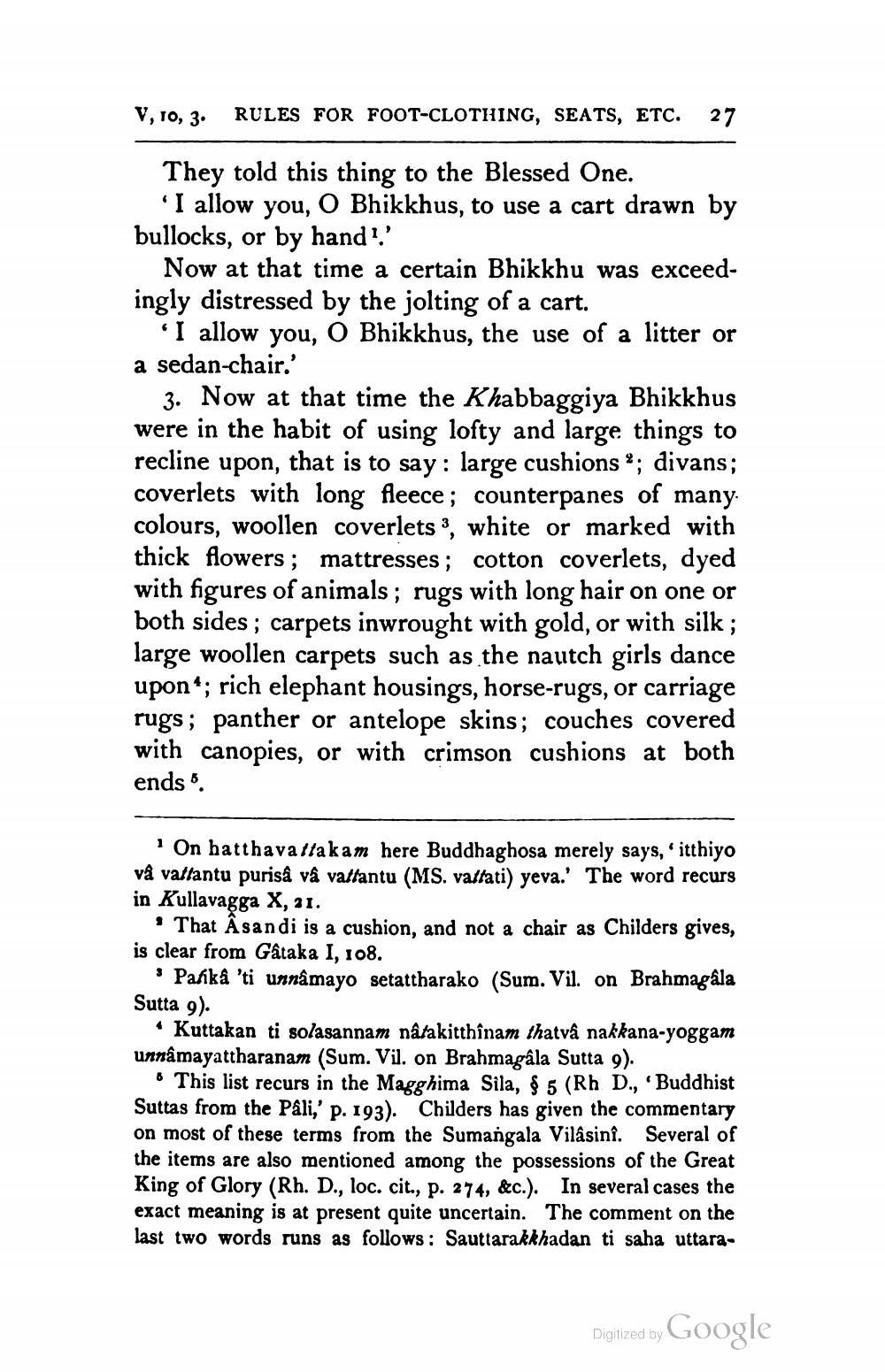________________
V, 10, 3.
RULES FOR FOOT-CLOTHING, SEATS, ETC. 27
They told this thing to the Blessed One.
'I allow you, O Bhikkhus, to use a cart drawn by bullocks, or by hand'.'
Now at that time a certain Bhikkhu was exceedingly distressed by the jolting of a cart.
'I allow you, O Bhikkhus, the use of a litter or a sedan-chair.'
3. Now at that time the Khabbaggiya Bhikkhus were in the habit of using lofty and large things to recline upon, that is to say: large cushions; divans; coverlets with long fleece; counterpanes of many. colours, woollen coverlets 3, white or marked with thick flowers; mattresses; cotton coverlets, dyed with figures of animals; rugs with long hair on one or both sides; carpets inwrought with gold, or with silk; large woollen carpets such as the nautch girls dance upon1; rich elephant housings, horse-rugs, or carriage rugs; panther or antelope skins; couches covered with canopies, or with crimson cushions at both ends".
1 On hatthavaffakam here Buddhaghosa merely says, 'itthiyo vâ vallantu purisâ vâ vattantu (MS. vaftati) yeva.' The word recurs in Kullavagga X, 21.
That Asandi is a cushion, and not a chair as Childers gives, is clear from Gâtaka I, 108.
'Pafikâ 'ti unnâmayo setattharako (Sum. Vil. on Brahmagâla Sutta 9).
Kuttakan ti solasannam nâ/akitthînam thatvâ nakkana-yoggam unnâmayattharanam (Sum. Vil. on Brahmagâla Sutta 9).
⚫ This list recurs in the Magghima Sila, § 5 (Rh D., 'Buddhist Suttas from the Pâli,' p. 193). Childers has given the commentary on most of these terms from the Sumangala Vilâsinî. Several of the items are also mentioned among the possessions of the Great King of Glory (Rh. D., loc. cit., p. 274, &c.). In several cases the exact meaning is at present quite uncertain. The comment on the last two words runs as follows: Sauttarakkhadan ti saha uttara
Digitized by Google




